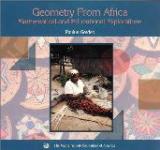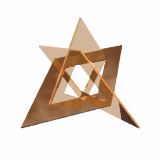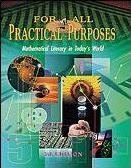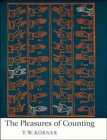Reviews and recommendations
'The mathematician Sophus Lie'"I am certain, absolutely certain that...these theories will be recognized as fundamental at some point in the future."
Sophus Lie said these words more than hundred years ago. We know now that he was right, absolutely right. The notions of "Lie groups" and "Lie algebras" are in the vocabulary of every mathematician and physicist today. Lie's theories are indispensable tools for understanding the physical laws of Nature.
'A Beautiful Mind' - film review A Beautiful Mind is a touching, emotionally charged film detailing the life of a brilliant academic who suffers from schizophrenia. This affliction slowly takes over his mind and we watch as his life crumbles apart around him.
'Mathematics Galore'"As Obi-Wan Kenobi said about the Light Sabre in Star Wars IV, a slide-rule is an ancient weapon from a more civilised age," state Chris Budd and Chris Sangwin in their book, Mathematics Galore, soon to released by Oxford University Press. The book digs up the slide-rule and a few more historical artefacts, as well as the art of country dancing, to present a pick-and-mix bag of mathematical ideas for the aspiring mathematician or the mathematically inclined general reader.
'Geometry from Africa'
This beautifully illustrated book by the world's leading authority on African mathematics provides us with a wide-ranging introduction to mathematical intuition in sub-Saharan African cultures. These cultures are extremely diverse and expressive in their creation of designs and motifs that embody geometrical and topological ideas. No one is better qualified to tell us about it than Paulus Gerdes, who has lived and worked in Mozambique for many years.
'Raising Public Awareness of Mathematics' - CD ROMThis CD ROM, produced by the Centre for the Popularisation of Mathematics at the University of Wales in Bangor, is a most unusual mixture of mathematical exposition and modern art. A central part of the content is a gallery of sculptures by John Robinson, much of whose work takes inspiration from mathematical objects, such as fractals and knots. This work, described by the artist as symbolic sculpture, uses forms such as the logarithmic spiral, and makes connections with the forces that shape our universe.
'The Math Chat Book'"Math Chat" began as a live phone-in TV show in the USA, spawned a newspaper column and a website, and now it has produced a book. The whole project was the brainchild of Williams' College mathematician Frank Morgan and has both stimulated interest in maths across a broad range of the community and led to the formation of highly successful undergraduate research groups in mathematics.
'In Code'This is the story of Sarah Flannery, who at age 16 won the titles of 1999 Irish Young Scientist of the Year and European Young Scientist of the Year for her innovative work on cryptography. Written by Sarah with her father David, who taught her mathematics from a young age and encouraged her mathematical flights, the book is an engaging mix of mathematical exposition - always clear and rigorous but never dull - and first-person descriptions of the storm that erupted when the world media latched onto her story. Easily written in a friendly style, you could imagine that this is the adventure of someone you know.
Two books for mathemagiciansIn this book, Martin Gardner, best known for his columns on recreational maths in Scientific American and the many books collecting this material, surveys a wide range of mathematical magic. Many of the tricks described require little or no dexterity and nothing except readily available props, such as cards or dice, and so are suitable for the beginner.
'The Language of Mathematics'"The Language of Mathematics" is a book that sets itself an ambitious task - to sum up all of mathematics. Clearly, the author does not intend to do this without omissions - mathematics is far too large a subject for that - rather, he hopes that the reader will come away with an understanding of what maths is and what mathematicians do and why.
'Taking Chances'John Haigh takes the above quote as the epigraph for "Taking Chances", and makes his own significant contribution to scientific literacy. He concerns himself with "games of chance" in the broadest sense, from the National Lottery, quiz shows, casino games and card, dice and coin games, through game-theoretic "games" such as military conflicts, to all types of sports.
'For All Practical Purposes'This is one of the world's outstanding pedagogic texts. It has the rare distinction of being a mathematics book that has sold a million copies. The COMAP project is a coalition of leading mathematicians and educators, directed by Solomon Garfunkel, who over a period of twelve years and five ever-expanding editions have created a beautiful introduction to the practical applications of some of the most important areas of discrete mathematics.
'The Pleasures of Counting'"The pleasure and interest of being a scientist need not be confined to those gifted people who have the ability to pursue the highly specialised studies which are necessary for those who would reach the main frontiers of scientific advance."
G. I. Taylor, one of the great physicists of the twentieth century, among the last masters of both theory and experiment.










